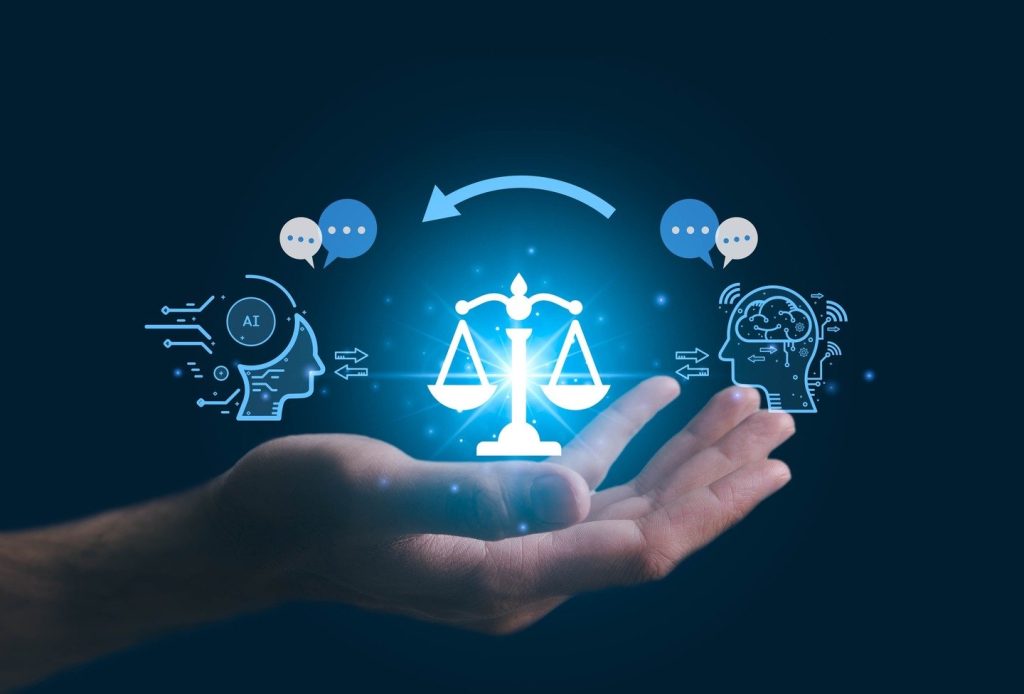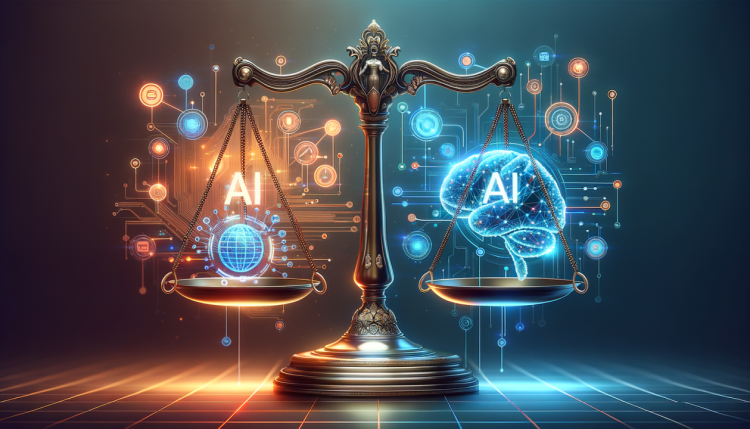Introduction
Artificial Intelligence (AI) is reshaping every aspect of society, from healthcare to finance, from manufacturing to entertainment. While AI’s potential to drive innovation and solve complex global challenges is vast, the rapid advancement of these technologies raises serious questions about regulation, governance, and ethical considerations. Unlike traditional technologies, AI systems can evolve autonomously, learn from vast datasets, and make decisions that affect people’s lives. This introduces new risks—ranging from biased decision-making and privacy concerns to accountability for actions taken by AI systems.
AI regulation and governance are critical to ensuring that these powerful technologies are used responsibly, ethically, and transparently. Governments, industries, and civil societies must collaborate to develop frameworks that guide AI’s development and use, ensuring it benefits society while minimizing harm. In this article, we explore the importance of AI regulation, the challenges it presents, and the strategies being considered worldwide to ensure that AI serves the greater good.
1. The Need for AI Regulation
1.1. The Rapid Growth of AI Technologies
Artificial intelligence is growing at an unprecedented rate. From machine learning algorithms that predict consumer behavior to autonomous vehicles navigating city streets, AI is already having a profound impact on various industries. The potential for AI to address societal issues, such as climate change, healthcare access, and educational inequalities, is immense. However, this rapid growth poses significant challenges:
- Unregulated Innovation: The pace at which AI is advancing may outstrip the development of regulatory frameworks that govern its use.
- Ethical Concerns: AI’s capacity to make decisions, often without human intervention, raises ethical concerns regarding accountability, transparency, and fairness.
- Bias and Discrimination: AI systems, if not properly regulated, can perpetuate biases present in the data they are trained on, leading to discriminatory outcomes in hiring, policing, lending, and other critical areas.
In light of these concerns, it becomes clear that comprehensive AI governance and regulation are essential to prevent potential harms and to unlock AI’s benefits in a controlled and equitable manner.
1.2. Defining AI Governance
AI governance refers to the policies, guidelines, and structures that guide the design, deployment, and use of AI technologies. It involves creating frameworks to ensure that AI systems are developed and used in ways that align with ethical principles, legal standards, and societal values. AI governance includes:
- Regulatory Oversight: Governments and regulatory bodies ensure compliance with laws, protecting individual rights and ensuring the responsible development of AI systems.
- Ethical Standards: Governance structures must ensure that AI systems operate in ways that are fair, transparent, and aligned with human values.
- Accountability Mechanisms: There must be clear lines of accountability for AI’s decision-making processes and the impacts it has on society.
Governance of AI, in essence, ensures that its deployment benefits society without unintended harmful consequences.
2. Key Challenges in AI Regulation
2.1. Lack of Universal Standards
AI technologies are evolving rapidly, often outpacing the creation of standardized regulations. Different countries, organizations, and industries have different approaches to AI governance, leading to a fragmented global landscape. This disparity in regulation creates challenges:
- Global Discrepancies: Countries like the European Union and China have already implemented AI frameworks, while others are still in the early stages of considering regulation.
- Industry-Specific Regulations: Some industries, such as finance and healthcare, have their own specific AI-related regulations, while other sectors may not have tailored frameworks at all.
A unified, global approach to AI regulation is still in development, and the lack of international standards poses significant challenges for AI governance.
2.2. Accountability and Transparency
One of the central challenges of AI regulation is ensuring that AI systems are transparent and accountable. AI algorithms often operate as “black boxes,” meaning that their decision-making processes are not easily understood by humans. This lack of transparency can be problematic when it comes to issues like:
- Bias in Algorithms: AI systems trained on biased datasets can perpetuate discrimination, but identifying the root causes of these biases can be challenging.
- Responsibility for AI Decisions: When an AI system makes an error, such as an incorrect medical diagnosis or an autonomous vehicle causing an accident, it can be difficult to assign responsibility. Who is accountable— the developer, the operator, or the AI itself?
Creating regulations that enforce transparency and accountability will be essential to fostering trust in AI technologies.
2.3. Data Privacy and Security
AI systems rely on large datasets to function effectively, which often includes sensitive personal information. The collection, processing, and storage of this data raise concerns about privacy and security. AI regulations must address:
- Data Protection: How is personal data being used by AI systems, and who controls it? Regulation must ensure that data collection is transparent and that individuals’ privacy is respected.
- Cybersecurity: AI systems, especially those involved in critical infrastructure, are potential targets for cyberattacks. Regulations must enforce robust cybersecurity standards to prevent malicious use of AI technologies.
Ensuring robust data privacy and security measures will be key to mitigating risks associated with AI.

3. AI Regulation Models Around the World
3.1. The European Union’s Approach
The European Union (EU) has been a leader in AI regulation, with the European Commission proposing the Artificial Intelligence Act in April 2021. This is the first legal framework of its kind that sets comprehensive rules for AI. The Act categorizes AI systems based on their level of risk— from minimal risk (like AI in video games) to high-risk systems (such as AI in healthcare and law enforcement). Key aspects of the EU’s AI regulation include:
- Risk-Based Classification: AI systems are classified according to their risk, with stricter regulations applying to high-risk systems.
- Transparency Requirements: AI systems must be transparent about how they operate, particularly in high-risk domains.
- Human Oversight: High-risk AI systems must have human oversight to ensure accountability and minimize risk.
The EU’s approach seeks to balance the promotion of innovation with ensuring that AI is developed and used safely and ethically.
3.2. The United States’ Approach
In the United States, AI regulation has been more fragmented and industry-driven, with less comprehensive federal legislation compared to the EU. Various government agencies, such as the National Institute of Standards and Technology (NIST) and the Federal Trade Commission (FTC), have released guidelines related to AI governance. However, there is no singular AI regulation framework in place. Some key points:
- Self-Regulation in Tech: Many AI-driven companies, especially in Silicon Valley, have adopted self-regulatory practices to ensure ethical AI development.
- Focus on Innovation: The U.S. tends to emphasize the promotion of AI innovation, with fewer legal restrictions compared to Europe, although this has led to concerns about insufficient safeguards.
- State-Level Initiatives: Some U.S. states have introduced their own AI regulations, such as California’s Consumer Privacy Act (CCPA), which indirectly impacts AI by addressing data privacy.
The lack of a unified, nationwide AI regulation approach in the U.S. has sparked debates about the need for stronger federal oversight.
3.3. China’s Approach to AI Regulation
China has become a global leader in AI research and development, but its regulatory framework is still evolving. The Chinese government has taken a proactive approach to AI, focusing on innovation, governance, and the protection of social stability. Key elements of China’s AI governance include:
- Centralized Control: The Chinese government has implemented centralized control over AI development, including ensuring that AI aligns with the country’s political and societal values.
- Social Control and Surveillance: China has integrated AI extensively into its surveillance systems, raising significant concerns about privacy and human rights. However, this approach has also allowed China to maintain control over how AI technologies are used in society.
- AI Ethics Guidelines: The Chinese government has introduced ethical guidelines to promote the responsible development and use of AI, including ensuring that AI systems align with public interest and social harmony.
China’s approach to AI governance is highly centralized, reflecting the country’s political structure and societal values.
4. Ethical Considerations in AI Regulation
4.1. Fairness and Non-Discrimination
AI systems can perpetuate biases in their decision-making processes, particularly when trained on biased datasets. Ensuring fairness and non-discrimination in AI systems is a critical concern. Regulatory frameworks must:
- Ensure Equity: AI systems should be developed and used in ways that do not unfairly disadvantage marginalized groups or perpetuate historical biases.
- Monitor Algorithmic Outcomes: Continuous monitoring and auditing of AI algorithms are needed to detect and mitigate any discriminatory patterns that may emerge.
4.2. Transparency and Explainability
Transparency in AI decision-making processes is vital to building trust. Regulatory frameworks should require AI systems, especially those in high-risk applications, to be explainable to users. People should be able to understand how AI arrives at its conclusions or recommendations.
4.3. Accountability and Liability
Who is responsible when an AI system makes a mistake? Legal frameworks must address accountability in AI, determining who is liable for the actions of AI systems—whether it be developers, organizations, or even the AI itself in certain cases.
5. The Future of AI Governance
5.1. A Global AI Governance Framework
The future of AI regulation lies in the development of international standards that promote the responsible use of AI across borders. Countries must cooperate on creating harmonized regulations to ensure consistency in how AI is governed globally.
5.2. Continuous Monitoring and Adaptation
AI technologies are constantly evolving, and so too must the regulatory frameworks that govern them. Governments and regulatory bodies must create adaptive regulations that evolve alongside technological advancements.
5.3. Involvement of Diverse Stakeholders
AI regulation must involve a wide range of stakeholders, including governments, businesses, researchers, civil society, and the public. Ensuring diverse input in the development of AI governance frameworks will help create balanced and inclusive regulations.
Conclusion
AI regulation and governance are fundamental to ensuring that the powerful capabilities of artificial intelligence are harnessed responsibly, ethically, and for the benefit of society. The rapid pace of AI development presents unique challenges, but by establishing comprehensive, transparent, and adaptive regulatory frameworks, we can mitigate risks while encouraging innovation. As AI continues to evolve, it is critical that all sectors of society work together to create governance structures that balance the transformative potential of AI with the need to protect human rights, privacy, and fairness.











































